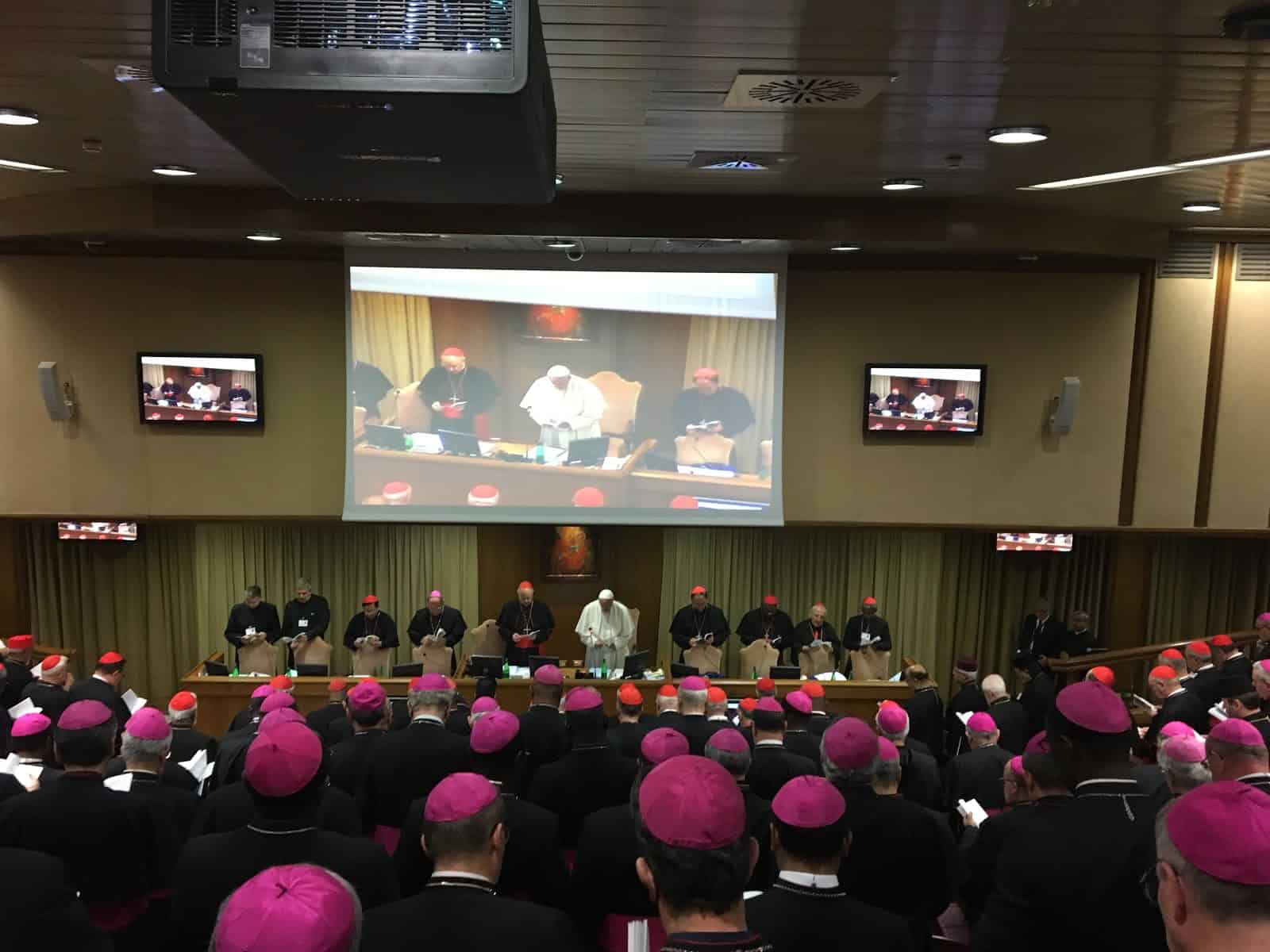Young people may use digital and social media, but what we ultimately desire lies far beyond it.
“Digital pastoral care” as a way to meet young people where they are remains a main topic of conversation for bishops and auditors at the Synod on the Youth. Bishops are aware that young people, many of whom are opting out of religion, speak a digital language. It may be less clear however, that many non-religious young people who are spiritual seekers, are doing so outside of the digital sphere. This is because young people are seeking authenticity. Digital technology, however helpful, cannot substitute for authentic human and divine relationships.
There is no question that the Church needs to do more with digital and social media in order to reach young people. It also true that God can be found everywhere and does use all means, including digital media, to pull people to Himself. Nonetheless, a personal and intimate relationship with God will necessarily need to move beyond the digital. Finding intimacy with God requires silence, solitude, stillness, and patience.
As some Synod members point out, digital and social media are neither good or bad, but neutral media. However, the digital language young people speak is less important than what many of us are missing and what we ultimately desire: authentic friendship and a connection to God whose language is silence and tenderness.
Taizé
Young people are being drawn to the spiritual regardless of digital media. At a recent Synod press briefing, Brother Alois of the Taizé community spoke about thousands of young people, religious and not, who come each year to their community. What is it that draws so many to Taizé for a week of contemplation, community, and sung praise? It isn’t Taizé’s digital or social media platform.
The simple, repetitive chant prayer of Taizé “is an awakening of personal prayer in the heart, and at the same time it’s a common language that unites us,” Br. Alois told TJP. This connection, not only of unity with our neighbor, but with Transcendence, is what many young people seek. While many are leaving the Church, they still continue to seek a spiritual life. The desire for more, for God, is not lost in young people.
Communities like Taizé offer young people both a welcoming community and a way to experience a profound spiritual connection to God. This same is seen in groups like the Nuns & Nones, where religiously disaffiliated millenials are finding inspiration in community, activism, and contemplation of Catholic sisters, another group without a thriving digital or social media platform.
Through encounters like these, young people “wonder how it is possible that we are united like this, and then they can discover that Christ is really present. Christ is not an idea. The Gospel is not a theory but a presence,” Br. Alois explained.
Silence and Sacrament
Synod members are conscious of the new media’s limitations, but could we be missing the forest for the trees? Focusing too much on the digital language young people speak could distract us from capitalizing on authentic spiritual, albeit not religious, seeking that many still have.
The Synod’s working document notes that, “the irruption of digital technology is starting to have a very profound impact on the notion of time and space, on our self-perception and on how we see others and the world….[it] is changing our way of learning and the development of critical faculties.” It not only changes critical faculties, but limits our spiritual faculties when pushed too far. We do need the Church to reach us where we are, but we also need the Church to reveal show us the limits of digital language in our pursuit for authenticity.
Social media was an important factor in the development of my own faith life and vocational discernment. It allowed me to hear stories of men and women religious fighting poverty and exploitation all over the world, stories I likely would not have encountered otherwise. It allowed me to feel more connected to the universal church in a meaningful way.
However, all of this was a stepping stone to a relationship with God, who is encountered primarily in silence and sacrament. That relationship, more than the stories found online, is what has most radically changed my life. We encounter grace when ordinary elements of the bare earth, wheat, grapes, olives, water, are transformed into something extraordinary by a silent and invisible mystery. In this, grace penetrates the heart and is recognized in silent reflection of such sacred mysteries.
While the wider culture proposes a technological and digital revolution, the Church must propose a revolution that is simple and quiet, one that is fundamentally tender not digital. This revolution already exists in the Church and has been conserved for centuries in places like Taizé and in the hearts and wisdom of older generations. More important than using digital media, is presenting, or better, living this age-old tradition of contemplation and sacrament in an authentic and loving way. This is what attracts so many thousands to Taizé and what is sparking the nones’ curiosity in nuns.
It is important for the Church to know the digital language and speak it. It is also important to realize that young people are actively seeking something beyond, something modeled in the Word who takes flesh in silence and stillness of ordinary earthen vessels.


